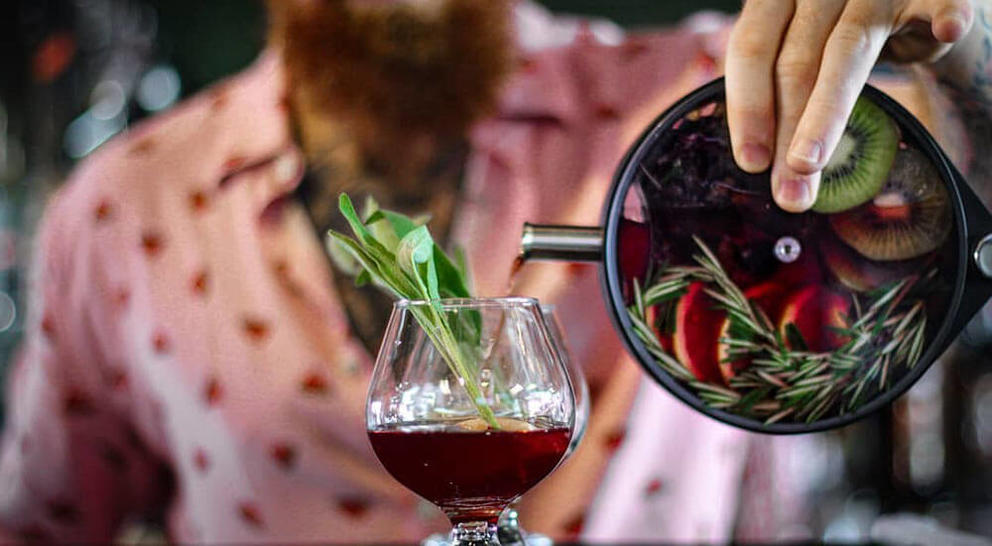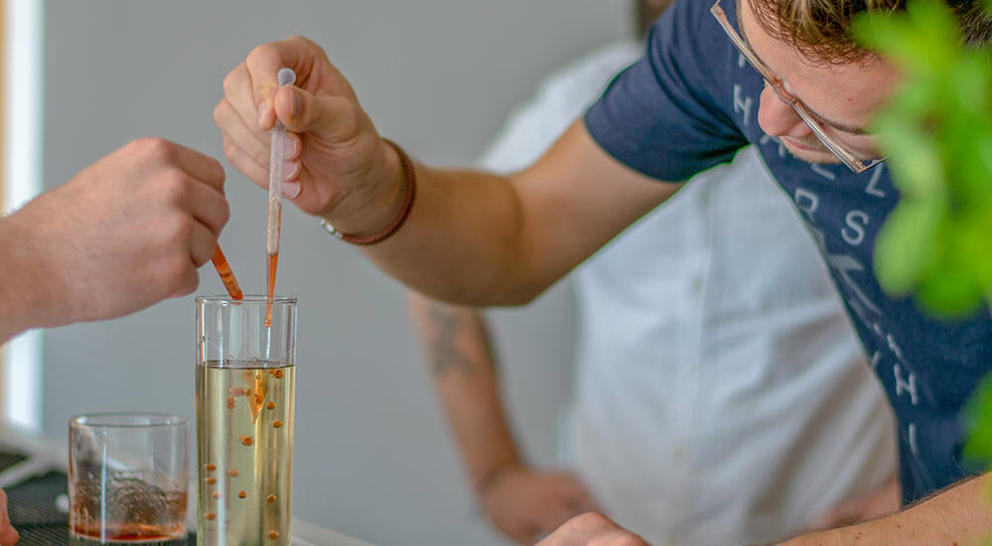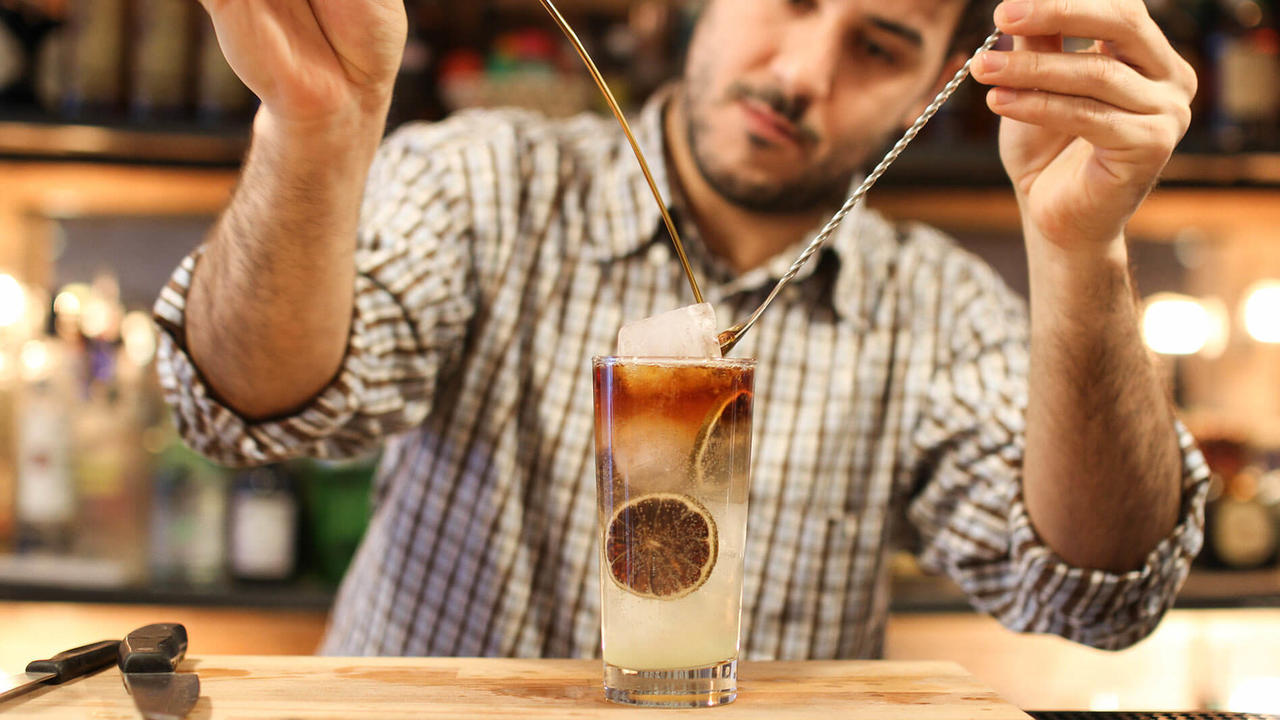The terms ‘mixology’ and ‘mixologist’ are ones that are quite commonly used in the hospitality industry, and have become better known to the general public in the last few decades, an increasingly respected profession associated with carefully-crafted drinks. But what are we actually referring to when we use these terms? It could be easy for all of us to assume what they might mean based on our understanding of the general context, but we’re here to clarify exactly what mixology is, and help you gain a greater understanding of the drinks industry by grasping what these terms mean.
Definition

The Oxford English Dictionary defines ‘mixology’ as ‘the skill of mixing cocktails or other drinks’, and so it follows that ‘mixologist’ is defined as a person who possesses these skills. But we might need to go deeper than this to find the true essence of mixology and making the distinction between bartending and mixology is one way to go about doing this. According to cocktail luminary and writer, Gary Regan, a mixologist will make an amazing cocktail that you will remember that night, whereas a bartender will make an amazing night for you that you will remember forever.
So whereas a mixologist is someone who is involved in creating cocktails and inventing new drinks and techniques based on extensive knowledge of all the ingredients available as well as a deep understanding of the history of drinks, a bartender is a person who is able to draw from that intelligence and bring it to life in a practical sense, tend to the day-to-day functions of the bar, serve and entertain customers, and if need be intuit the customers needs to produce the perfect drinks. And those with both of these skill sets have really struck gold!
History
Though mixology may seem like a word that has only recently become fashionable, it actually dates back to the eighteenth century, first appearing in 1987 according to the Merriam-Webster dictionary. It was maybe even derived from the title of the seminal work in bartending literature, How to Mix Drinks, published in 1862, and written by the godfather of cocktails, Jerry Thomas. Around this time the term was frequently used, and in 1879 the Los Angeles Herald even described a mixologist as a “different and odd occupation” on the government register.
Molecular mixology
Yet another newly-fashionable phrase to add to the list is molecular mixology, a slightly different approach to cocktail making which is based on the food science field of molecular gastronomy. Though still in its infancy, this new way of looking at mixology involves taking a scientific view of the physical properties of ingredients, ice and the glass used, and focuses on the flavours as well as the presentation. Molecular mixology makes use of a range of forms and substances, such as powders, foams, gels and atomised sprays, in techniques that are at the forefront of pioneering mixology. Though they may not have been labelled as such in the past, layered cocktails, such as the Vertigo, are examples of molecular mixology in that they are making use of the different density and viscosity of particular ingredients.
Becoming a mixologist

For those looking to dip their toes into the world of mixology, and perhaps one day even call themselves a mixologist, there are a few things that it might be worth remembering.
The European Bartender School offer intensive bartender courses and a specialist mixology course to train you in everything you need to know about how to become a skilled bartender and mixologist.
Learn from others – speak to people who know a thing or two about mixology, and if possible see if you can find a mentor, or at least someone who will be willing to share some of their time and expertise.
Don’t limit yourself – rather than sticking to a particular set of ingredients that may be the most familiar, consider that mixology is about a limitless spectrum of tastes that can be found in spirits, liqueur and flavourings from all different places.
Know your tools – the best mixologists use the best equipment, so don’t settle for less. Invest in some quality tools from a good wholesalers, such as cocktail emporium or Uber Bar Tools.
Be creative – in this game you need to be innovative and inventive, so it’s not enough to follow recipes all of the time. Mixologists are those that can think outside the box, show they know what they are working with and that they have the flair to create elegance, style and taste in a drink.
All in all, there’s more to mixology than might first meet the eye. It’s a field of boundless depth and exquisite tastes that may seem daunting to the newcomer, but enormously satisfying to the master.

